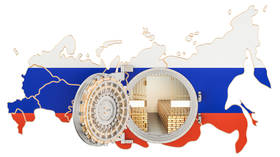Telegram’s experience illustrates the competing pressures. The app is popular in Russia and Ukraine for sharing images, videos and information about the war. But it has also become a gathering ground for war misinformation, such as unverified images from battlefields.
On Sunday, Pavel Durov, Telegram’s founder, posted to his more than 600,000 followers on the platform that he was considering blocking some war-related channels inside Ukraine and Russia because they could aggravate the conflict and incite ethnic hatred.
Users responded with alarm, saying they relied on Telegram for independent information. Less than an hour later, Mr. Durov reversed course.
Understand Russia’s Attack on Ukraine
Card 1 of 7
What is at the root of this invasion? Russia considers Ukraine within its natural sphere of influence, and it has grown unnerved at Ukraine’s closeness with the West and the prospect that the country might join NATO or the European Union. While Ukraine is part of neither, it receives financial and military aid from the United States and Europe.
“Many users asked us not to consider disabling Telegram channels for the period of the conflict, since we are the only source of information for them,” he wrote. Telegram did not respond to a request for comment.
Inside Meta, which also owns Instagram and WhatsApp, the situation has been “chaotic” because of the volume of Russian disinformation on its apps, said two employees, who were not authorized to speak publicly. Russian experts on Meta’s security team, which identifies and removes state-sponsored disinformation from Facebook and Instagram, have been working around the clock and communicating regularly with Twitter, YouTube and other companies about their findings, the two employees said.
Meta’s security team has long debated whether to restrict Sputnik and Russia Today, two of Russia’s largest state-run media sites, on its platforms or label their posts so they clearly state their source. Russia Today and Sputnik are “critical elements in Russia’s disinformation and propaganda ecosystem,” according to a January report from the State Department.
Meta executives had resisted the moves, saying they would anger Russia, the employees said. But after war broke out, Nick Clegg, who heads global affairs for Meta, announced on Monday that the company would restrict access to Russia Today and Sputnik across the European Union.
Article source: https://www.nytimes.com/2022/02/28/technology/ukraine-russia-social-media.html




